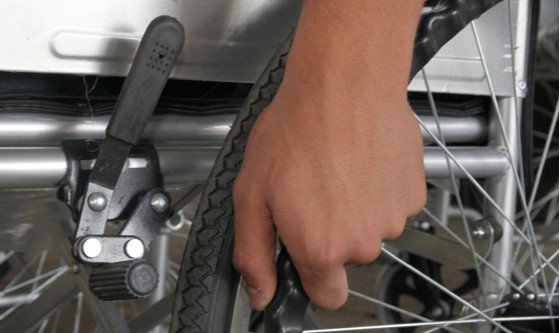
‘Disabled’ is not a bad word
We have unconscious assumptions of what agency looks like on a day to day basis. This assumption looks almost nothing like the reality.
According to the United Nations, approximately 80 million Africans are living with visible disabilities, and there are innumerable Africans with invisible ones.
Disability can become anyone’s reality at age. A disability is defined as ‘a condition or function judged as impaired relative to the usual standard of an individual or group’. Because disability is also judged against the individual’s standard, it is experienced differently despite seeming similar to other peoples’.
For this reason and other contributing factors based on history, environment, support and so on, disability is thought of as being a multidimensional experience for the person involved. Depending on the mental or physical limitations experienced by a person, simple tasks such as eating a meal or reading a book can become difficult, or even impossible.
The International Classification of Functioning, Disability and Health (ICF) identifies three main dimensions of disability: Body structure and function (and impairment thereof), Activity (and activity restrictions) and Participation (and participation restrictions).
Types of Disability
Disability can be further broken down into a number of broad sub-categories, which include the following main types: Mobility/Physical, Spinal Cord (SCI), Head Injuries (TBI), Vision, Hearing, Cognitive/Learning, Psychological and Invisible.
§ Mobility disabilities can be inborn or acquired through old age or as the effect of a disease. Aside from upper and lower limb disability, it also covers manual agility and discoordination of organs.
§ Spinal cord injury (SCI) can lead to lifelong disabilities and mostly occurs due to severe accidents or as a birth defect. SCI can present as either an incomplete injury where the messages conveyed by the spinal cord are not completely lost or as a complete injury which results in total disfunction of the sensory organs.
§ The two types of brain injuries, Acquired Brain Injury (ABI) and Traumatic Brain Injury (TBI) can range from mild to severe. ABI can be a degeneration that occurs after birth or as a result of external force while TBI causes emotional and behavioural disorders.
§ Vision disabilities are fairly common and can consist of diabetes-related eye conditions and dry eyes. There are, however, more serious conditions and diseases that could lead to blindness or visual trauma.
§ Hearing disabilities refer to people that are completely or partially deaf. Partial deafness can be improved through hearing aids and learning techniques such as lip-reading. Fully deaf people communicate through rich, complex and regionally-specific sign languages. Hundreds are in use around the world.
§ Cognitive disabilities are a kind of impairment found in people with learning disabilities such as dyslexia or speech disorders. Some can be improved through therapy and other coaching interventions.
§ Disabilities aren’t just physical. They also comprise Psychological disorders that affect one’s mood, emotions or behaviour. Mental Health Impairment is the term used to describe people who have experienced psychiatric problems or illnesses. These can be grouped into two main types:
Affective disorders or mood disorders are a set of psychiatric disorders that can disrupt a person’s life or compromise its quality. Some types of affective disorders are depression, bipolar disorder, and anxiety disorder.
Personality disorders, on the other hand, are mental disorders which cause a rigid and unhealthy pattern of thinking, functioning and behaving. A person with a personality disorder has trouble perceiving and relating to situations and people, thus causing significant impairment in day-to-day activities
§ Some disabilities are not immediately apparent to others. These Invisible disabilities can affect a person’s memory, communication or social relationships. They can also include chronic illnesses such as renal failure, debilitating pain, Epilepsy, and Chronic Fatigue Syndrome.
Disabled is not a bad word
We should all feel a responsibility to be socially inclusive of everyone around us. This responsibility extends to our use of correct language that does not other or condescend. Over the years, there has been a constant trial and error to find other terms to replace ‘disabled’. Although alternative euphemisms like ‘handicapped,’ ‘able-bodied,’ ‘physically challenged,’ and ‘differently abled’ may appear more politically correct and respectful, many (not all) people with disabilities disagree.
This is because these alternative terms assume that the term ‘disabled’ is a negative quality or derogatory word, when it is in fact just a descriptor. These words also focus on the wrong things.
For example, ‘challenged,’ implies that the person with the disability is the problem as opposed to the instances of discrimination and environmental access barriers that disabled people experience. ‘Differently abled’ implies that there’s such a thing as a standard body that possesses standard abilities. But there is no such thing! No two people are able to do exactly the same things in exactly the same ways. Essentially, we are all differently abled.
These words also do not account for invisible disabilities. It is therefore wise to take cues from people with disabilities on which terms they use for themselves.
Additionally, even when interacting with people with cognitive and psychological disorders always assume competence and intelligence. You can do this by using respectful language and tone of voice as you would with anyone else.
Remember that people with disabilities also require love and understanding in terms of love, sex and relationships, and desire the same level of access and acceptance as everyone else. Take this into account in your interactions as well, and try to see people in all their varieties and all the packages they come in.
Do you have disabled friends? What do they like to be referred to as?
